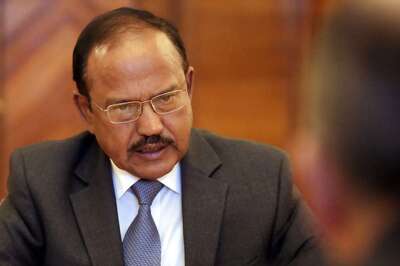
views
The United States is negotiating the sale of at least four sophisticated aerial drones to Taiwan for the first time, sources told Reuters, in a deal that is likely to further ratchet up Sino-U.S. tensions.
Here are some facts about Taiwan’s relations with China and the United States, and why the issue is so sensitive.
CHINA’S POSITION ON TAIWAN
China views democratic Taiwan as merely a wayward Chinese province and its “sacred” territory, awaiting the day the island can be brought under its control – peacefully or militarily – with no right to state-to-state relations.
China enacted an anti-secession law in 2005 that mandates the use of force if the government judges Taiwan to have declared independence, though it says “peaceful reunification” is its aim.
TAIWAN’S POSITION
Taiwan’s ruling Democratic Progressive Party supports the island’s separate identity from China and the right of Taiwan’s people to decide their own future. President Tsai Ing-wen says Taiwan already is an independent country called the Republic of China, the island’s formal name.
The party says that the People’s Republic of China has never ruled Taiwan and that its unelected government has no right to speak for Taiwan’s people, who choose their own leaders.
CHINA-U.S. TIES
Relations between Beijing and Washington have soured since U.S. President Donald Trump took office in 2017, with Taiwan just one of a number of destabilising factors.
The two sides have argued over trade, human rights, China’s response to the new coronavirus pandemic and more recently the Chinese-owned video-sharing app TikTok.
China calls Taiwan the most important, most sensitive issue in its relations with the United States.
TAIWAN-U.S. RELATIONS
The United States has ramped up arms sales to Taiwan, including tanks and fighter jets, and has taken an increasingly strident position in supporting Taiwan’s role on the international stage, particularly at the World Health Organization (WHO).
Next week, U.S. Health Secretary Alex Azar visits Taipei, the highest-level visit in four decades.
TAIWAN-CHINA MILITARY TENSIONS
China maintains a massive numerical military advantage over Taiwan, and is adding advanced weaponry like stealthy fighters and aircraft carriers Taiwan cannot hope to match directly.
But Taiwan’s armed forces are well trained and President Tsai has made their modernisation a priority.
Chinese jets and aircraft make regular forays into the airspace and seas around Taiwan, which Taipei denounces as attempts at intimidation. The two have not fired a shot in anger in decades.
(Writing by Ben Blanchard and Yimou Lee. Editing by Gerry Doyle)
Disclaimer: This post has been auto-published from an agency feed without any modifications to the text and has not been reviewed by an editor




















Comments
0 comment